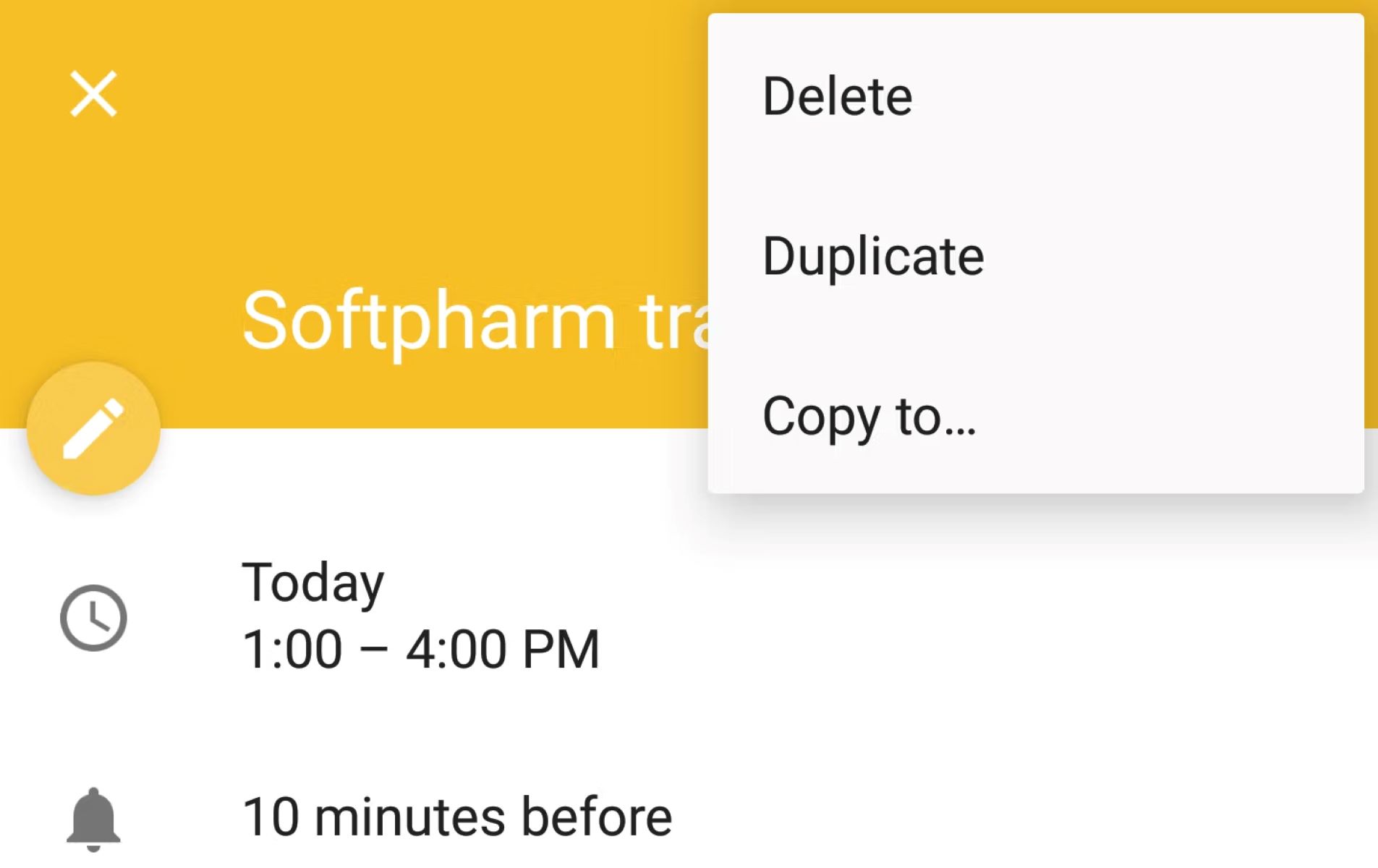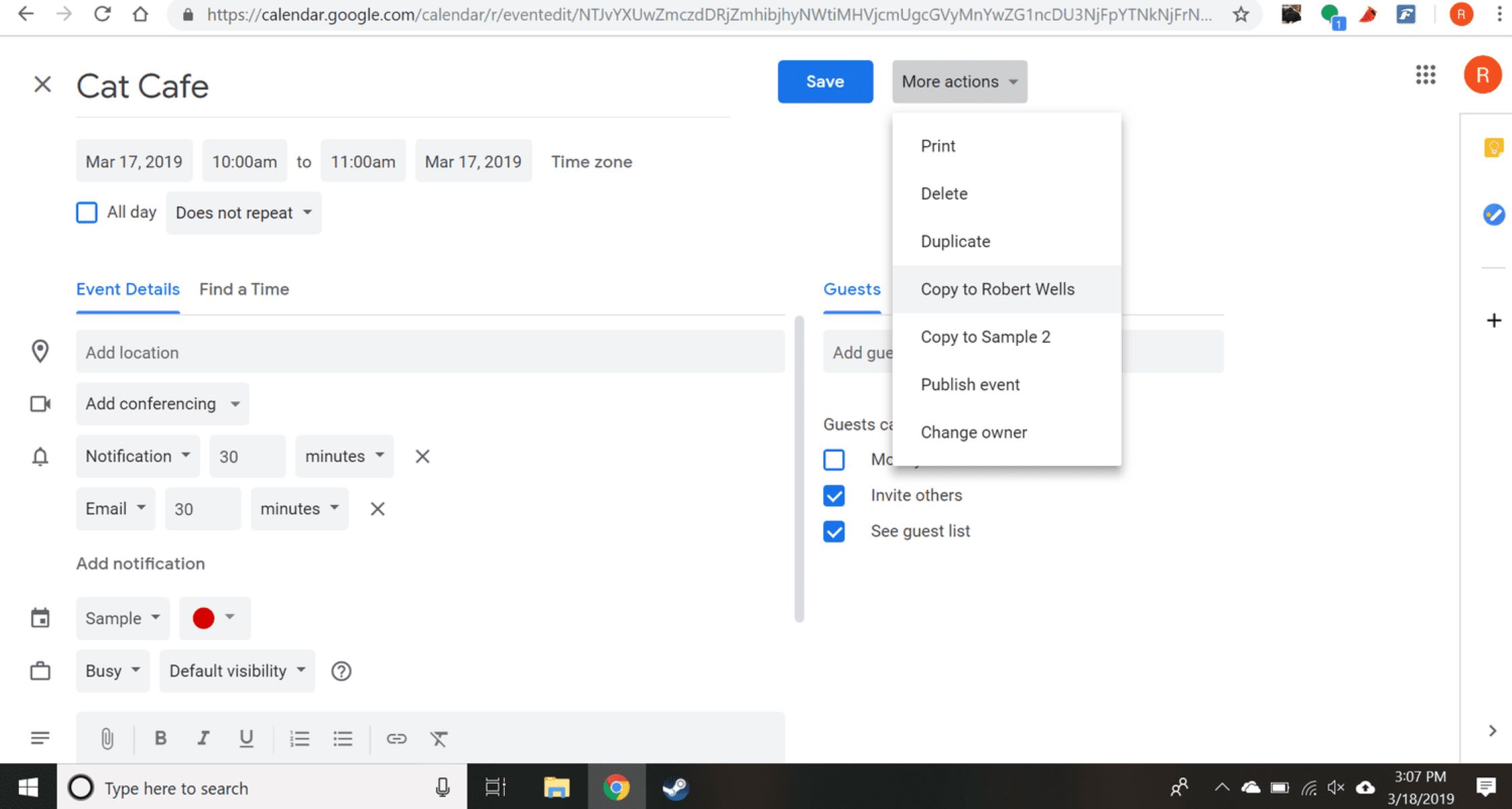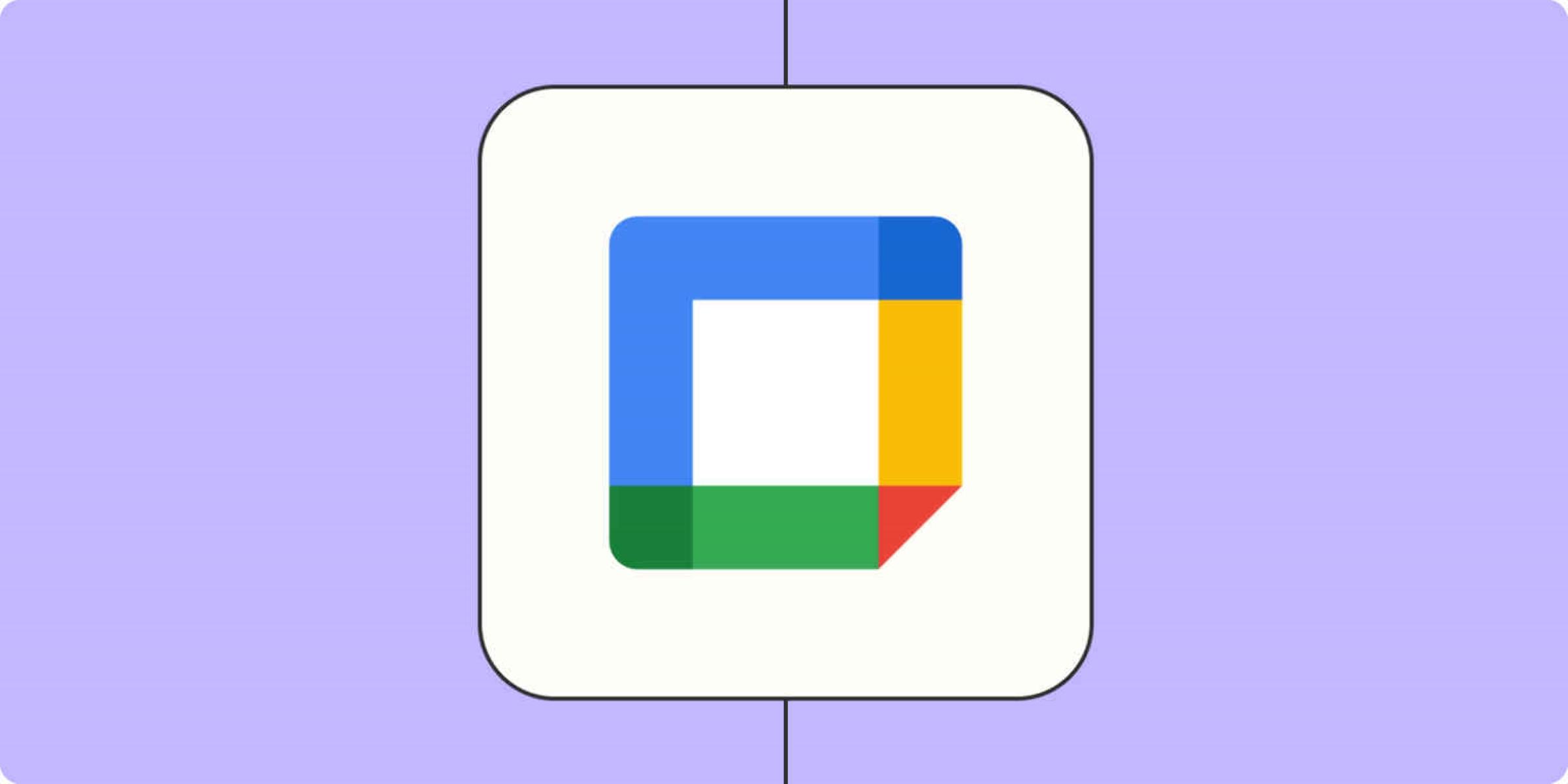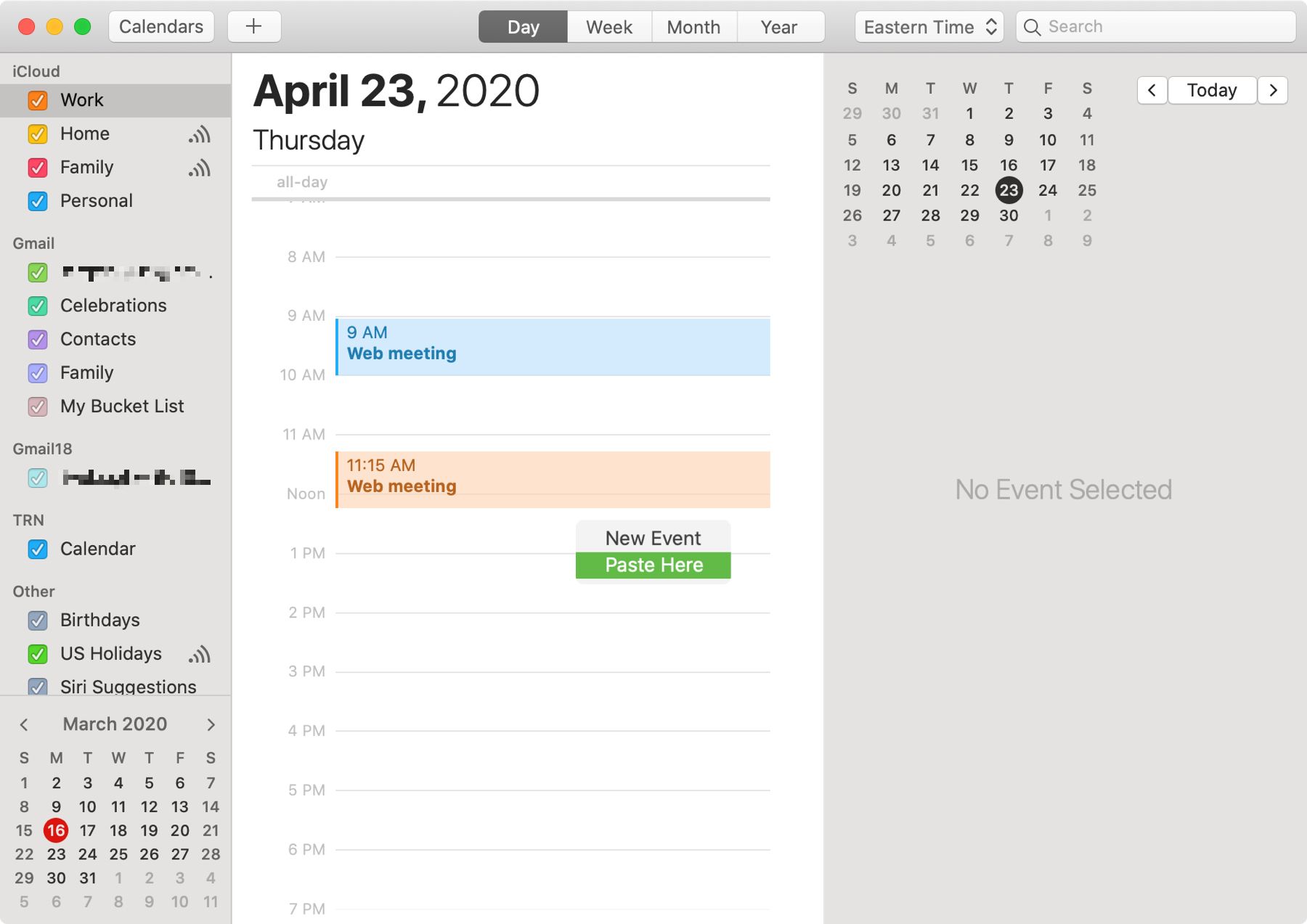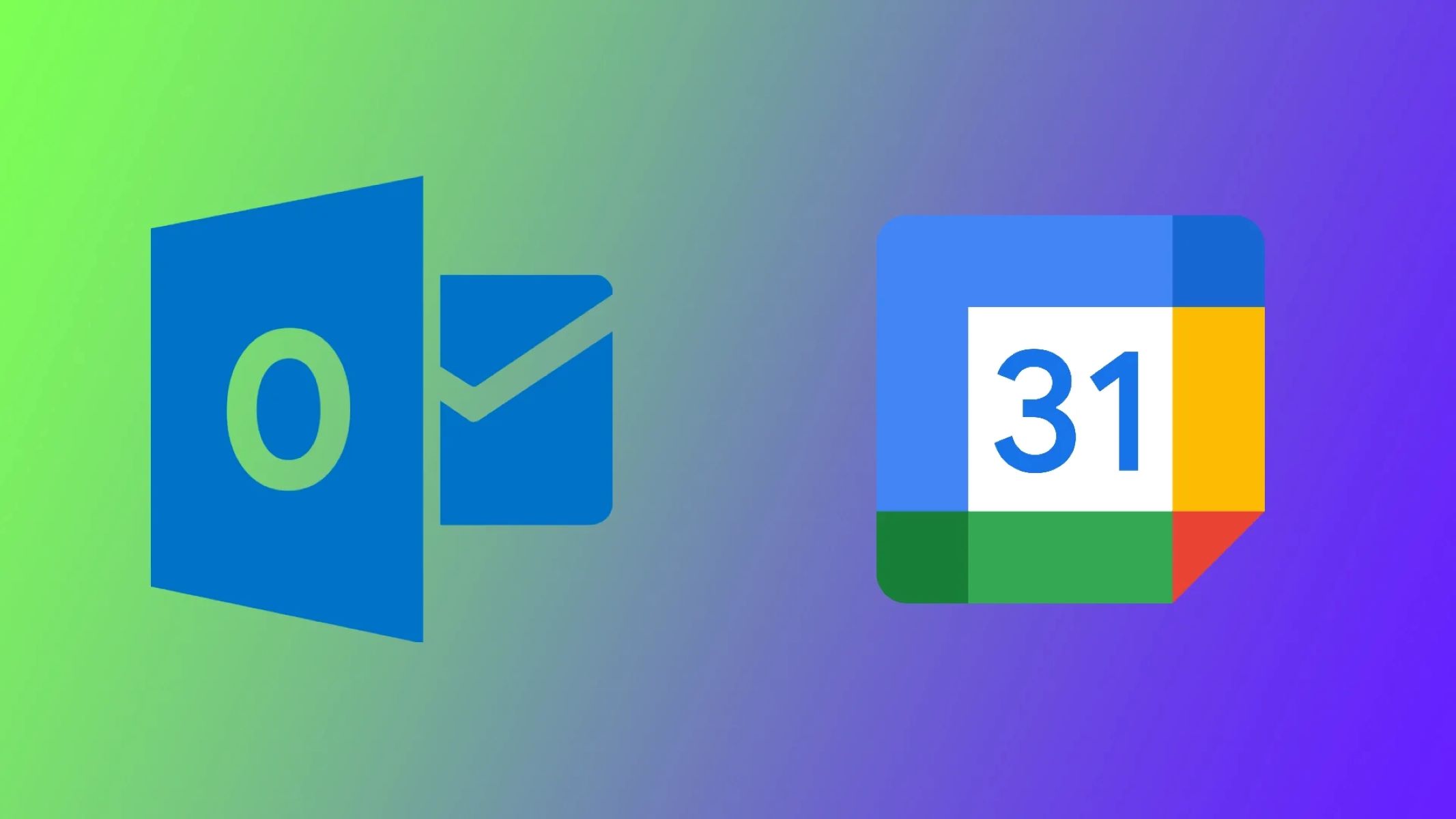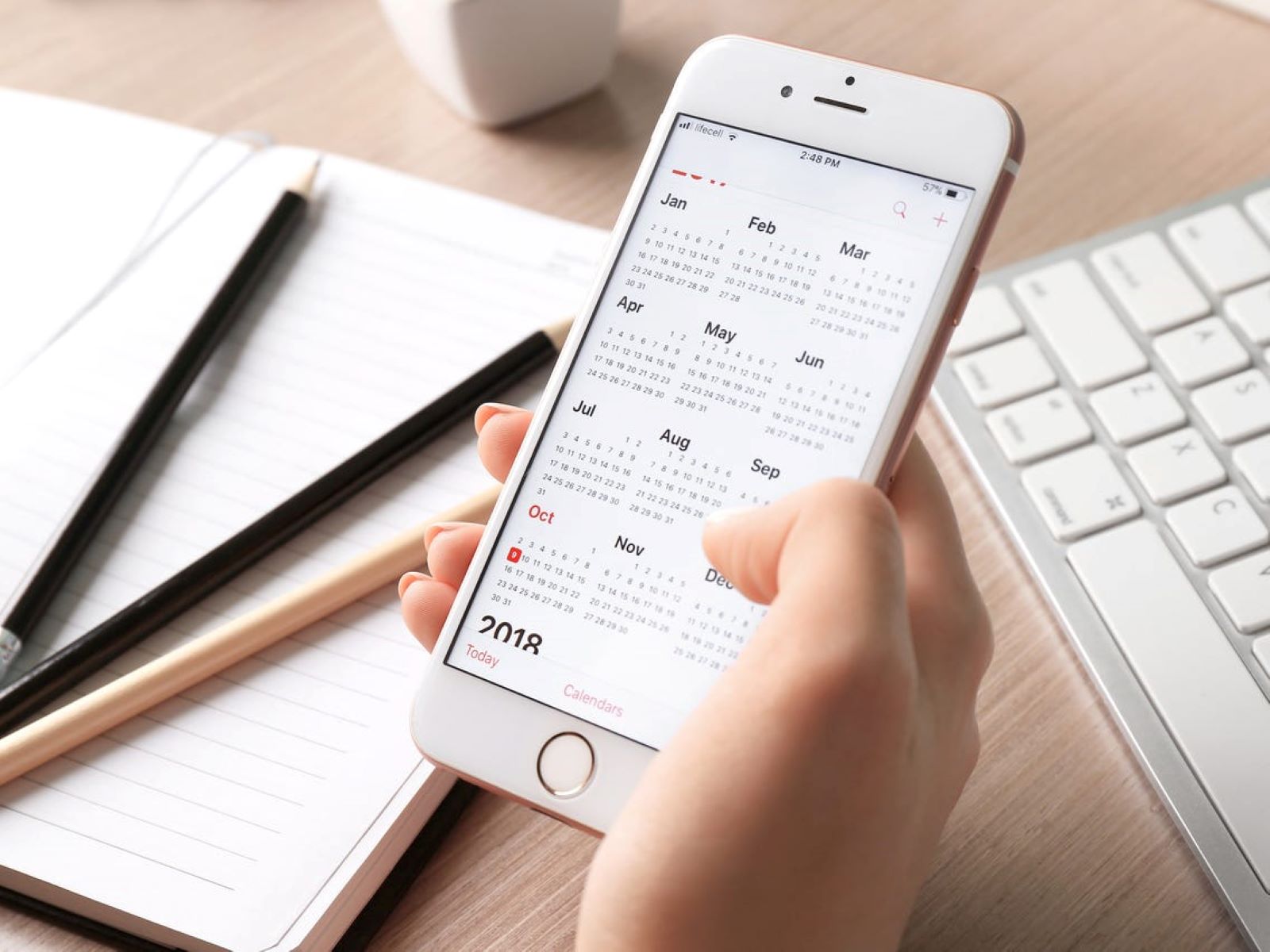Introduction
Google Calendar is a widely used online calendar service that helps millions of people organize their schedules and stay on top of their appointments. However, one common issue that users encounter is the duplication of events. It can be frustrating and confusing to see multiple instances of the same event cluttering up your calendar.
Understanding why Google Calendar duplicates events is essential in order to effectively troubleshoot and resolve this issue. In this article, we will delve into the reasons behind event duplication and provide some useful tips to avoid it.
Google Calendar is a powerful tool that offers seamless synchronization across various devices and platforms. It allows you to create and manage events, set reminders, and share calendars with others. With its intuitive interface and extensive features, Google Calendar has become an indispensable tool for individuals, businesses, and organizations alike.
However, despite its many benefits, users occasionally encounter the frustrating problem of duplicated events. This occurs when a single event appears multiple times in the calendar, causing confusion and clutter.
There can be several reasons why Google Calendar duplicates events, ranging from syncing issues with other applications to time zone changes. Understanding these causes can help you identify and resolve the issue more effectively.
In the following sections, we will explore some of the common reasons for event duplication in Google Calendar and provide practical solutions to avoid this problem.
Understanding Google Calendar
Google Calendar is an online calendar service developed by Google. It allows users to create and manage events, set reminders, and share calendars with others. With its user-friendly interface and powerful features, Google Calendar has become a popular choice for individuals, businesses, and organizations to keep track of their schedules.
One of the key advantages of Google Calendar is its ability to synchronize events across different devices and platforms. This means that you can access your calendar from your computer, smartphone, or tablet, ensuring that you stay up to date with your appointments no matter where you are. The real-time synchronization ensures that any changes made to your calendar are reflected across all your devices instantly.
Google Calendar also offers various features to make scheduling and organizing events more convenient. You can create recurring events, set reminders and notifications, invite others to events, and even integrate your calendar with other applications and services. Additionally, you can share specific calendars with different people, allowing for efficient collaboration and coordination.
Another useful feature of Google Calendar is its integration with other Google services. For example, you can easily add events from Gmail to your calendar with just a few clicks, making it seamless to keep track of important appointments and meetings.
Overall, Google Calendar provides a comprehensive and flexible platform for managing your schedule. Whether you are an individual looking to organize your personal events or a business wanting to coordinate team schedules, Google Calendar offers the tools and functionality to streamline your planning process.
However, despite its many benefits, Google Calendar is not without its issues. One common problem that users encounter is the duplication of events. This can be a frustrating and time-consuming issue to deal with, but understanding the reasons behind event duplication can help you prevent and resolve it more effectively.
Reasons for Event Duplication
Event duplication in Google Calendar can be caused by various factors, ranging from syncing issues with other applications to recurring events and time zone changes. Understanding these reasons can help you identify the root cause of the problem and find a suitable solution.
1. Syncing Issues with Other Applications: If you have enabled synchronization between Google Calendar and other applications or services, such as Outlook or Apple Calendar, it is possible for events to be duplicated when there is a conflict in the syncing process. This can occur if both Google Calendar and the other application are trying to update the same event simultaneously.
2. Multiple Synchronized Devices: If you have multiple devices, such as a computer, smartphone, and tablet, all synchronized with your Google Calendar, it is possible for events to be duplicated if changes are made on more than one device without proper synchronization. This can happen when a device is offline or if there are syncing delays between the devices.
3. Time Zone Changes: When you travel to a different time zone, events in your calendar can be affected. If you don’t properly adjust the time zone settings or if there is a discrepancy between the time zone settings on your devices, it can result in events being duplicated or appearing at the wrong time.
4. Recurring Events: Google Calendar allows you to create recurring events, such as weekly meetings or monthly reminders. However, issues can arise with recurring events when there are conflicts with specific occurrences or if the recurrence pattern is not correctly set. This can lead to the duplication of events on certain dates.
5. Importing Events: If you import events into Google Calendar from other sources, such as a CSV file or another calendar application, there is a possibility of duplicated events if the import settings are not configured correctly. This can happen if the import process is repeated or if there are conflicts with existing events in your calendar.
Understanding these reasons for event duplication in Google Calendar is essential for troubleshooting and preventing this issue. In the next section, we will explore some practical tips to help you avoid event duplication and maintain a clean and organized calendar.
Syncing Issues with Other Applications
One common reason for event duplication in Google Calendar is syncing issues with other applications or services that you have connected to your calendar. When there is a conflict in the syncing process, events can end up being duplicated. Here are some factors to consider when troubleshooting syncing issues:
a. Check Syncing Settings: Start by checking the syncing settings for the applications or services that are connected to your Google Calendar. Ensure that the frequency of syncing is set appropriately and that there are no conflicting preferences between the different applications.
b. Remove Unnecessary Synchronization: If you have multiple applications syncing with Google Calendar, consider removing any unnecessary connections. Having too many applications trying to update the same events can lead to conflicts and duplication. Identify which applications are essential for your calendaring needs and limit the number of syncing connections to those.
c. Resolve Conflicts Promptly: If you notice duplicated events, it’s important to resolve any conflicts as soon as possible. Delete or merge duplicate events and ensure that the syncing process is working correctly moving forward.
d. Update Application Versions: Keep your applications and devices up to date with the latest versions. Sometimes, syncing issues can occur due to outdated software or compatibility problems. Updating to the latest version of the applications involved can help resolve syncing conflicts and prevent event duplication.
e. Seek Technical Support: If you have tried the above steps and are still experiencing syncing issues and event duplication, consider reaching out to technical support for the specific applications or services involved. They may be able to provide further guidance or troubleshooting assistance to resolve the problem.
By addressing and resolving syncing issues with other applications, you can minimize the chances of event duplication in Google Calendar. It’s important to regularly review and manage your syncing connections to ensure a smooth and trouble-free calendaring experience.
Multiple Synchronized Devices
Having multiple synchronized devices, such as a computer, smartphone, and tablet, is convenient for accessing and managing your Google Calendar from different platforms. However, it can also contribute to event duplication if changes are made on more than one device without proper synchronization. To avoid this issue, consider the following recommendations:
a. Enable Proper Synchronization: Ensure that all your devices are properly synchronized with your Google Calendar account. This means signing in with the same Google account and allowing the necessary permissions for calendar syncing. Double-check the settings on each device to ensure that events are being synced correctly.
b. Avoid Offline Syncing: When making changes to your events, it’s best to have an internet connection. Editing or adding events while offline can lead to conflicts when your devices try to sync with each other and the central Google Calendar server. Make sure you are connected to the internet before making any changes to your calendar.
c. Give Syncing Time: After making changes on one device, give your other synchronized devices enough time to receive and sync the updates. Sometimes, delays in syncing can occur, resulting in duplicated events. Patience is key to allowing the syncing process to complete properly.
d. Regularly Sync Devices: Occasionally, manually sync your devices to ensure that all changes are up to date. This can help resolve any syncing discrepancies or conflicts that may have occurred. Each device may have its own method of manually triggering a sync, so consult the documentation specific to your device to perform this action.
e. Verify Syncing Setup: Check the syncing settings on each device to ensure that they are consistent. Confirm that all devices are set to sync both ways—meaning changes made on one device are reflected on all other devices and vice versa. This will help prevent events from being duplicated due to one-way syncing.
By following these recommendations, you can minimize the chances of event duplication when using multiple synchronized devices with Google Calendar. It’s crucial to maintain proper synchronization across all your devices to ensure a seamless and accurate calendar experience.
Time Zone Changes
Time zone changes can cause events in your Google Calendar to be duplicated or appear at the wrong time. Whether you’re traveling to a different time zone or there is a discrepancy in your device or calendar settings, it’s important to address this issue to avoid confusion and ensure accurate scheduling. Consider the following steps to manage time zone changes effectively:
a. Update Time Zone Settings: When traveling to a different time zone, update the time zone settings on your devices and in Google Calendar. This ensures that events are displayed correctly according to the local time. Double-check that the time zone settings are accurate and consistent across all devices to prevent event duplication or misplacement.
b. Allow for Time Zone Adjustment: When you arrive in a new time zone, give your devices and Google Calendar time to adjust. Occasionally, there may be a slight delay in updating the time zone settings. Avoid making changes to your calendar or creating new events immediately after arriving in a new time zone to allow for accurate time synchronization.
c. Handle Appointments with Care: If you have scheduled appointments that span time zone changes, be mindful of the timing when editing or modifying these events. Changing the time of an appointment near a time zone boundary can result in event duplication or shifting. Adjust the start and end times of the appointment to the local time of the destination to ensure accuracy.
d. Verify Calendar Display: Check the display settings of your Google Calendar to ensure that events are shown in the correct time zone format. It’s essential to choose the appropriate time zone format that aligns with your preferences and avoids confusion when viewing events in different time zones.
e. Cross-Check with Other Calendars: If you have multiple calendars, such as personal and work calendars, cross-check the time zone settings for each calendar. Make sure they are consistent and accurately reflect the time zone of your events. This can prevent conflicts and duplication when events are synced across different calendars.
By addressing time zone changes and ensuring accurate time synchronization, you can avoid event duplication and misplacement in your Google Calendar. It’s important to be mindful of these considerations, especially when traveling or dealing with events that span across different time zones.
Recurring Events
Recurring events in Google Calendar are a great way to schedule regular meetings, appointments, or reminders. However, issues can arise with recurring events that can lead to event duplication or conflicts. Understanding how to handle recurring events properly can help you avoid these problems. Consider the following tips:
a. Review Recurrence Pattern: When creating a recurring event, carefully review the recurrence pattern to ensure it matches your desired schedule. Pay attention to the frequency, start date, end date, and any exceptions or modifications you may have made. Make sure the recurrence pattern accurately reflects the intended schedule to avoid any duplication or unexpected occurrences.
b. Modify Specific Occurrences: If you need to make changes to a specific occurrence of a recurring event, be cautious. Modifying a single occurrence might inadvertently affect future occurrences or cause duplication. When in doubt, consider editing the entire series or deleting and recreating the specific occurrence to ensure the changes are applied correctly.
c. Be Mindful of Time Changes: Time changes can affect recurring events, especially if they span the daylight saving time transition or other time zone adjustments. Verify that the event times are updated correctly after a time change and ensure that the recurrence pattern and exceptions align with the new time settings.
d. Use Separate Calendars: If you have recurring events with different schedules or exceptions, consider using separate calendars for each specific event series. This allows for better organization and minimizes the risk of event duplication or confusion. You can easily switch between calendars or overlay them when viewing your schedule.
e. Regularly Review and Update: Periodically review your recurring events to ensure they are still relevant and accurate. Remove any recurring events that are no longer necessary or modify the recurrence pattern as needed. Regularly reviewing and updating your recurring events can help prevent duplication and keep your calendar up to date.
By handling recurring events with care and attention, you can avoid event duplication and ensure that your schedule remains organized and dependable. It’s important to review and adjust recurring events as needed to maintain an accurate and up-to-date calendar.
Importing Events
Importing events into Google Calendar can be a convenient way to transfer information from other sources or applications. However, there are certain factors to consider to avoid event duplication or conflicts when importing events. Follow these tips to ensure a smooth and error-free importing process:
a. Verify Import Settings: Before importing events, carefully review the import settings to ensure they are configured correctly. Pay attention to options such as duplicates handling, time zone adjustments, and calendar selection. Adjust the settings according to your preferences to prevent event duplication or other import-related issues.
b. Check for Existing Events: Before importing events, check your Google Calendar for any existing events that may overlap or conflict with the imported events. Manually remove or modify any overlapping events to avoid duplication or conflicting schedules.
c. Clean Up Imported Data: After importing events, thoroughly review the imported data to ensure its accuracy. Check for any duplicated events or inconsistencies in the data. Remove any unnecessary or duplicated events to keep your calendar organized and clutter-free.
d. Confirm Import Sources: When importing events from external sources or applications, ensure that the data is reliable and compatible with Google Calendar. Verify that the file format (e.g., CSV, ICS) and the content of the imported data are correctly structured to avoid any issues during the import process.
e. Double-Check Time Zone Settings: Pay close attention to the time zone settings during the import process. If the imported events have different time zones associated with them, ensure that the time zone settings in Google Calendar are adjusted correctly to avoid event duplication or scheduling conflicts.
By following these guidelines when importing events into Google Calendar, you can minimize the risk of event duplication and ensure a smooth and accurate integration of external event data. It is crucial to review, clean up, and verify the imported events to maintain a well-organized calendar.
How to Avoid Event Duplication
Event duplication in Google Calendar can be frustrating and time-consuming to deal with. However, by implementing some preventive measures and adopting best practices, you can significantly reduce the chances of events being duplicated. Here are some tips to help you avoid event duplication:
a. Regularly Review Your Calendar: Take the time to regularly review your calendar to ensure it is accurate and up to date. Delete any duplicate or unnecessary events that may have been created by mistake.
b. Be Mindful When Creating Events: Pay attention to the details when creating events in Google Calendar. Double-check the date, time, and recurrence settings to ensure they are correct before saving the event. By taking a moment to review your entries, you can avoid inadvertently creating duplicate events.
c. Use Syncing Apps/Services with Caution: If you use third-party syncing apps or services to integrate your Google Calendar with other platforms, be cautious. Make sure to thoroughly review the syncing settings and preferences to ensure they are configured correctly. Avoid enabling duplicate syncing or unnecessary synchronization that could lead to event duplication.
d. Communicate Changes to Event Participants: If you make changes to an event that involves other participants, communicate the updates to them. This way, all participants are aware of the changes, and there is less chance of duplicate events being created due to miscommunication.
e. Backup and Restore Calendar Data: Regularly backup your calendar data to avoid any loss or accidental duplication of events. If you encounter event duplication issues, having a backup will enable you to restore your calendar to a previous working state.
f. Consult Google Calendar Help Center: If you encounter persistent event duplication issues or need further guidance, consult the Google Calendar Help Center. It provides a wealth of valuable resources and troubleshooting steps to address common calendar-related problems.
By implementing these measures and being proactive in managing your Google Calendar, you can minimize the occurrence of event duplication. Consistent review, attention to detail, and proper configuration of syncing settings are key to maintaining an accurate and organized calendar.
Check Syncing Settings
One of the first steps to avoid event duplication in Google Calendar is to check the syncing settings for applications or services connected to your calendar. By ensuring that these settings are configured correctly, you can prevent conflicts and minimize the chances of events being duplicated. Here are some guidelines for checking your syncing settings:
a. Review Sync Frequency: Take a look at the frequency at which your calendar syncs with other applications or services. Ensure that the syncing interval is set appropriately and suits your needs. Avoid extremely frequent or infrequent syncing, as it can lead to potential syncing conflicts and potential event duplication.
b. Confirm Syncing Directions: Check whether the syncing is set to be one-way or two-way. One-way syncing means that changes made in Google Calendar do not reflect in the connected application, and vice versa. Ensure that the syncing direction is bidirectional, allowing updates and modifications to be reflected accurately on both ends.
c. Check for Conflicting Preferences: If you have multiple applications or services syncing with your Google Calendar, make sure there are no conflicting syncing preferences. For example, some apps might have their own default settings for creating events, which could conflict with how Google Calendar handles event creation. Review these preferences and modify them accordingly to prevent event duplication.
d. Resolve Syncing Errors: Look for any error messages or notifications related to syncing between Google Calendar and external applications. If there are any sync errors, investigate and resolve them promptly to ensure smooth and accurate syncing operations. This will help prevent any potential issues that could lead to event duplication.
e. Test Syncing Process: Perform some test syncing operations to verify the accuracy and effectiveness of the syncing process. Create events in Google Calendar and monitor how they are synced across different applications or services. If any discrepancies or inconsistencies occur, delve deeper into the syncing settings to identify and address the source of the problem.
By reviewing and adjusting your syncing settings, you can minimize the risk of event duplication in Google Calendar. Consistent syncing configurations, accurate syncing directions, and proper management of syncing preferences are essential for maintaining a synchronized and reliable calendar system.
Remove Unnecessary Synchronization
To avoid event duplication in Google Calendar, it’s crucial to reassess and remove any unnecessary synchronization connections with external applications or services. Having too many applications syncing with your calendar can increase the chances of conflicts and duplication. Here are some steps to remove unnecessary synchronizations:
a. Identify Essential Syncing Connections: Take inventory of the applications or services that are currently syncing with your Google Calendar. Determine which ones are essential for your calendaring needs and require real-time syncing.
b. Evaluate Syncing Frequency: Consider the frequency at which each application or service syncs with your Google Calendar. If an application syncs too frequently, it may introduce more opportunities for conflicts and event duplication. Assess if the syncing frequency is necessary and appropriate for each connection.
c. Disable Unnecessary Syncing: Disable syncing connections that are unnecessary or redundant. For applications or services that do not require real-time updates or are not critical to your calendar management, turn off the syncing feature. Disabling unnecessary syncing reduces the potential for conflicts and duplication.
d. Remove Redundant External Calendars: Remove any redundant external calendars that are connected to your Google Calendar. These redundant calendars may have been created unintentionally or were added during the trial phase of different applications. Removing redundant calendars simplifies the syncing process and reduces the chances of event duplication.
e. Collaborate and Communicate: If you are using Google Calendar for collaborative purposes, communicate with your team or colleagues to identify and streamline syncing connections. Collaboratively decide on the essential apps or services to sync and disable unnecessary syncing connections to avoid confusion and event duplication.
By removing unnecessary synchronizations, you can reduce the risk of event duplication in Google Calendar. Keeping only essential syncing connections and disabling irrelevant or redundant syncs streamline your calendar management and prevent potential conflicts in event synchronization.
Update Time Zone Settings
Updating your time zone settings is crucial to prevent event duplication in Google Calendar, especially when traveling or dealing with events across different time zones. By ensuring accurate time zone settings, you can maintain the correct timing of events and minimize any confusion that may lead to duplicate entries. Here are some steps to update your time zone settings:
a. Verify Current Time Zone: Double-check the current time zone setting on your device or computer. Make sure it accurately reflects your actual location. Incorrect time zone settings can lead to events being displayed at the wrong time or duplicated across different time zones.
b. Adjust Time Zone for Travel: If you are traveling to a different time zone, update your device’s time zone settings accordingly. Most devices have an automatic time zone adjustment feature that can detect your location and update the time zone automatically. If your device doesn’t have this feature, manually adjust the time zone settings before traveling.
c. Handle Daylight Saving Time Changes: During daylight saving time changes, it’s essential to update your time zone settings to reflect the correct time. Check the dates and timings of the daylight saving time changes in your region and adjust your time zone settings accordingly to prevent event duplication or incorrect scheduling.
d. Update Time Zone Settings in Google Calendar: Ensure that your Google Calendar is set to the correct time zone. Open your Google Calendar settings, navigate to the “General” tab, and verify that the time zone selected matches your actual location or the time zone you want to use for your events.
e. Regularly Check and Adjust Time Zone Settings: Periodically review your time zone settings on all devices where you access Google Calendar. This is particularly important if you frequently travel or if you use multiple devices. Keep your time zone settings consistent across all devices to maintain accurate event timings.
By updating your time zone settings correctly, you can avoid event duplication and ensure that events are displayed at the correct time in Google Calendar. Consistent time zone management helps maintain the accuracy of your calendar and prevents any confusion or scheduling conflicts that may arise due to incorrect time zone settings.
Handle Recurring Events Carefully
Recurring events in Google Calendar can be a time-saving feature, but they require careful handling to avoid event duplication and maintain accuracy. Here are some tips to help you handle recurring events properly:
a. Review Recurrence Settings: When creating a recurring event, carefully review the recurrence settings to ensure they match your intended schedule. Verify the start date, end date, frequency, and any exceptions or modifications you have made. This helps prevent inconsistencies or duplicated occurrences.
b. Modify Recurring Events with Caution: If you need to make changes to a recurring event, exercise caution. Modifying a single occurrence within a series may affect future occurrences and could lead to event duplication. Consider editing the entire series or creating a new occurrence without modifying the series to ensure accuracy.
c. Check for Conflicts: Regularly review your calendar to identify any conflicts among recurring events. Conflicting events create confusion and may result in event duplication. Adjust the timing or recurrence pattern of overlapping events to avoid conflicts and ensure accurate scheduling.
d. Communicate Changes: If you make changes to a recurring event that involves other participants, communicate the updates to them. A simple notification or email can ensure that everyone is aware of the changes and helps prevent event duplication due to miscommunication or conflicting schedules.
e. Monitor Exceptions and Modifications: Keep an eye on exceptions or modifications to recurring events. These changes may affect future occurrences and can result in event duplication if not handled carefully. Regularly review exceptions and modifications to ensure they align with the intended schedule and do not create conflicts or duplications.
By handling recurring events carefully, you can avoid event duplication and maintain accurate scheduling in Google Calendar. Regularly reviewing, communicating changes, and being mindful of potential conflicts or modifications are key to successfully managing recurring events in your calendar.
Double-check Event Imports
Importing events into Google Calendar can be a convenient way to populate your calendar with data from external sources. However, it is crucial to double-check event imports to prevent event duplication and ensure that the imported events are accurate. Here are some guidelines for double-checking event imports:
a. Verify Import Settings: Before importing events, carefully review the import settings to ensure they are correctly configured. Pay attention to options such as date format, time zone adjustments, and event details mapping. Confirm that the settings match the format and structure of the events being imported.
b. Preview Imported Events: Most import processes provide a preview of the imported events before finalizing. Take advantage of this feature to check the imported events for accuracy. Pay attention to date, time, and any specific details associated with each event. Double-check that the imported events reflect the intended information.
c. Remove Duplicates: Before importing events, check your Google Calendar for any existing events that may overlap with the imported events. Remove or modify any duplicate events manually to avoid clutter and event duplication. Ensuring a clean calendar before importing helps prevent the creation of redundant events.
d. Check Imported Data Format: If you are importing events from a file or external source, ensure that the data format is compatible with Google Calendar. Confirm that the fields and data structure align with the requirements of Google Calendar for proper event mapping and accurate import.
e. Validate Time Zone: During the import process, verify that the time zone settings are correctly configured. If the imported events have different time zones associated with them, make sure the time zone settings in Google Calendar are adjusted accordingly. This helps ensure that event timing is accurate and eliminates the risk of event duplication due to time zone discrepancies.
By double-checking event imports, you can minimize the chances of event duplication and maintain accurate scheduling in Google Calendar. Taking the time to review import settings, preview imported events, and validate the time zone settings will help ensure a seamless and accurate integration of external event data.
Conclusion
Event duplication can be a frustrating issue when using Google Calendar, but with the right knowledge and practices, it can be minimized and even avoided. By understanding the reasons behind event duplication and implementing preventive measures, you can maintain a clean and organized calendar system.
Throughout this article, we explored various factors that contribute to event duplication in Google Calendar. These include syncing issues with other applications, multiple synchronized devices, time zone changes, recurring events, and event imports. By understanding these factors, you can identify potential sources of duplication and take appropriate actions to prevent them.
We discussed the importance of checking syncing settings, removing unnecessary synchronization connections, updating time zone settings accurately, handling recurring events carefully, and double-checking event imports. By following these guidelines, you can significantly reduce the chances of event duplication and maintain the accuracy of your Google Calendar.
Remember to regularly review your calendar, communicate changes, and stay vigilant when creating, modifying, or importing events. Double-checking your settings and being mindful of potential conflicts or discrepancies will go a long way in ensuring a seamless calendaring experience.
In conclusion, by implementing the practices outlined in this article, you can effectively avoid event duplication in Google Calendar. Keeping your calendar organized, accurate, and free from duplicates allows you to stay on top of your schedule and make the most of this powerful tool. With these strategies in place, you can confidently rely on Google Calendar to manage your events and appointments without the worry of duplication complications.









